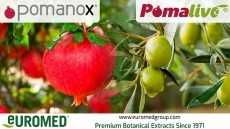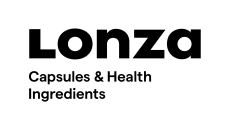Green tea may halve prostate cancer risk
prostate cancer by 48 per cent, reports a new study from Japan.
Writing in the American Journal of Epidemiology, researchers from Japan's National Cancer Center report that the benefits of the beverage may be limited to advanced prostate cancer, with no effects observed on localised cancer. The news adds to a growing list of benefits that has linked tea and tea extracts, ranging from a lower risk of certain cancers to weight loss, and protection against Alzheimer's, have been linked to the polyphenol content of the tea. Green tea contains between 30 and 40 per cent of water-extractable polyphenols, while black tea (green tea that has been oxidized by fermentation) contains between 3 and 10 per cent. Oolong tea is semi-fermented tea and is somewhere between green and black tea. The four primary polyphenols found in fresh tealeaves are epigallocatechin gallate (EGCG), epigallocatechin, epicatechin gallate, and epicatechin. The Japan Public Health Center-based Prospective Study (JPHC Study) studied 49,920 Japanese men aged from 40 to 69. The participants completed a questionnaires at the start of the study to identify dietary intakes, including their habitual green tea consumption. The study, initially established in 1990, followed the men through until 2004, and 404 cases of prostate cancer were diagnosed in this time. Of these cases, 114 were advanced cases, 271 were localized, and 19 were undeterminable. Over half a million news cases of prostate cancer are diagnosed every year world wide, and the cancer is the direct cause of over 200,000 deaths. More worryingly, the incidence of the disease is increasing with a rise of 1.7 per cent over 15 years. While the researchers did not find an association between green tea intake and localised prostate cancer, a protective effect was found for advanced prostate cancer. Moreover, this association was found to be dose-dependent, with increased intake linked to reduced risk. Drinking five or more cups a day was associated with a 48 per cent reduction in advanced prostate cancer risk, compared to drinking less than one cup per day. "Green tea may be associated with a decreased risk of advanced prostate cancer," concluded the researchers, led by Norie Kurahashi. No mechanistic study was performed by the researchers, and it is not clear which of the components of the beverage may be responsible for the benefits, and whether such effects were synergistic. Also, the study is limited by being based on self-reporting via the questionnaire, and the possibility that dietary intakes changed between the start and end of the study. Nonetheless, the research does appear in-line with a wealth of other studies reporting potential anti-cancer benefits of green tea and its extracts. European demand for tea extracts is currently surging, having reached 500 metric tonnes by 2003. This has seen companies such as DSM, with its Teavigo boasting 95 per cent purity of EGCG, and Taiyo International, with its Sunphenon claiming more than 90 per cent purity, position themselves firmly in specific catechin markets. Source: American Journal of Epidemiology Published on-line ahead of print, doi:10.1093/aje/kwm249 "Green Tea Consumption and Prostate Cancer Risk in Japanese Men: A Prospective Study" Authors: Norie Kurahashi, S. Sasazuki, M. Iwasaki, M. Inoue and S. Tsugane for the JPHC Study Group










